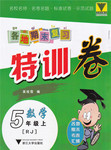题目内容
A beggar, carrying a shabby(破旧的) old wallet, was begging alone from house to house. As he complained about his 36 , he kept wondering that people who lived in 37 houses should always be unsatisfied, 38 rich they might be, and they should go so far as to 39 all they have.
“Here, for example,” he said, the former master of this house succeeded in trading, and made himself very rich. By then, instead of stopping, and handing over his 40 to another, and spending the rest of his years 41 peace, he took to(从事) equipping ships. He expected to get mountains of gold; but the ships were 42 , and his treasures were lost. Now they all lie at the bottom of the sea, and he has found his 43 disappeared like those in dreams. In short, examples of this are 44.
At this moment Fortune suddenly appeared to the beggar and said, “Listen! I have long wished to 45 you. Here are a lot of gold coins I have found. Hold out your wallet, and I will fill it with them; but only on this condition: All shall be gold that falls into the wallet, but if 46 of them falls out of the wallet to the ground, it 47 become dust. Consider this well. I have warned you I shall 48 keep my word. Your wallet is old, don’t fill it 49 its power.” The beggar was almost too overjoyed to breathe. He 50 felt the ground below his feet. A stream of coins were poured 51 it. The wallet soon became rather heavy.
“Is that 52 ?” “Not yet,” “Isn’t it 53 ?” “Never fear.” “Consider, you are a millionaire.” “Just a little more, just 54 a handful,” But at that moment the wallet broke, the gold coins 55 dust and Fortune disappeared. The beggar had nothing but his empty wallet and remained as poor as before.
1.A. plan B. fate C. idea D. dream
2.A. dark B. poor C. clean D. rich
3.A. how B. so C. however D. whatever
4.A. win B. lose C. throw D. forget
5.A. business B. debt C. money D. chance
6.A. to B. on C. with D. in
7.A. bought B. sold C. missed D. robbed
8.A. luck B. riches C. trade D. future
9.A. countless B. wonderful C. helpless D. funny
10.A. admire B. help C. encourage D. excite
11.A. little B. much C. any D. lots
12.A. must B. may C. shall D. can
13.A. mostly B. simply C. possibly D. strictly
14.A. beyond B. within C. during D. by
15.A. really B. actually C. hardly D. nearly
16.A. for B. into C. on D. from
17.A. so B. enough C. true D. right
18.A. trembling B. shaking C. breaking D. rolling
19.A. try B. put C. leave D. add
20.A. cleared up B. brought up C. fell into D. turned into
1.B
2.D
3.C
4.B
5.A
6.D
7.D
8.B
9.A
10.B
11.C
12.C
13.D
14.A
15.C
16.B
17.B
18.C
19.D
20.D
【解析】略

 各地期末复习特训卷系列答案
各地期末复习特训卷系列答案 小博士期末闯关100分系列答案
小博士期末闯关100分系列答案